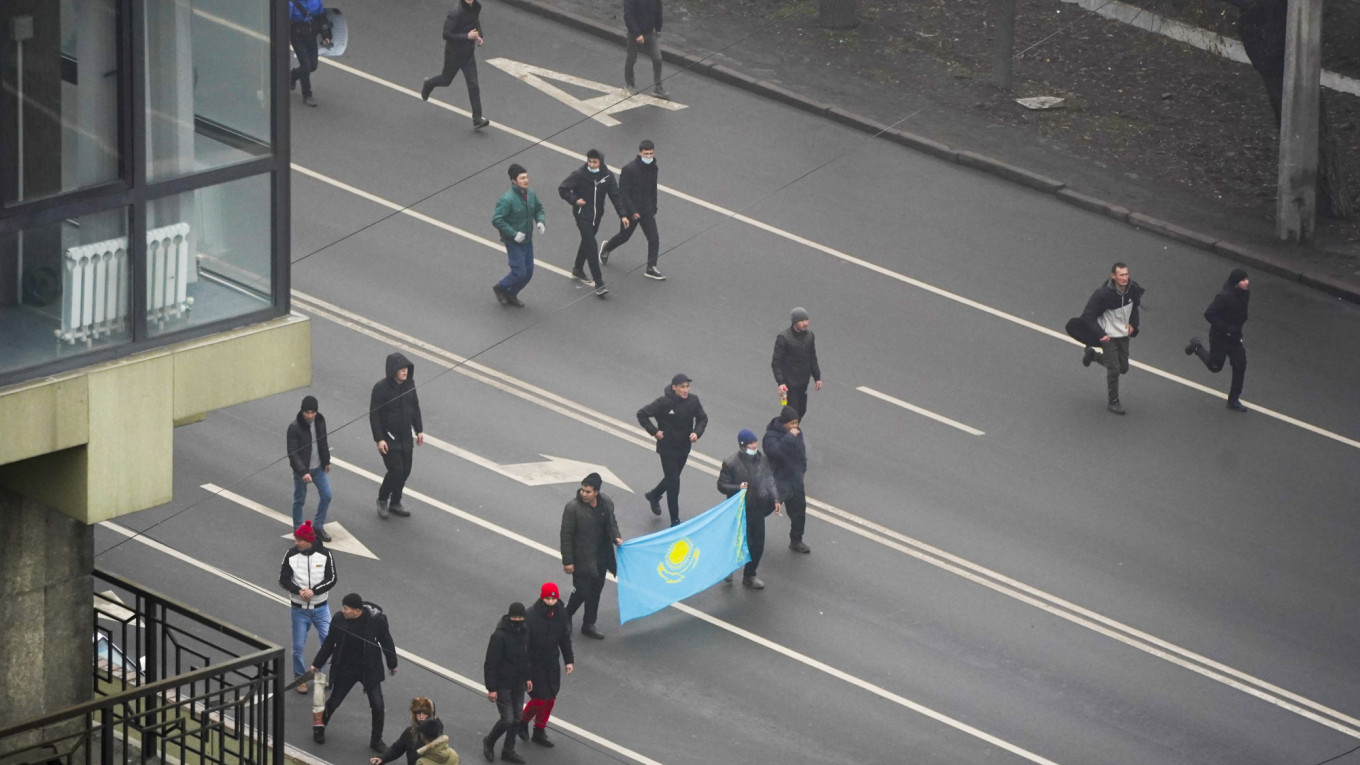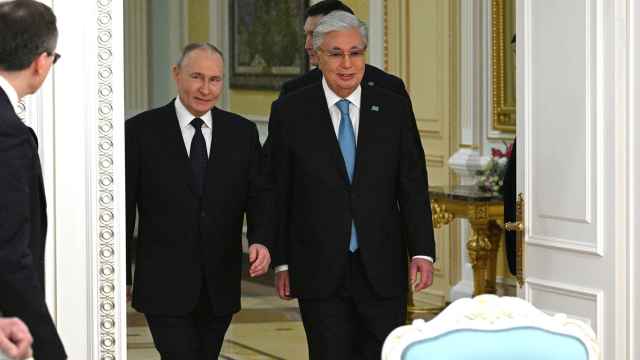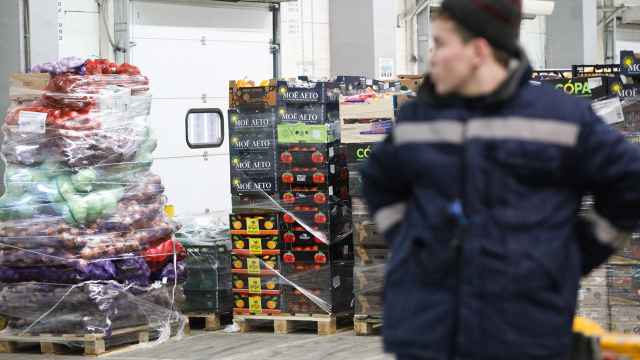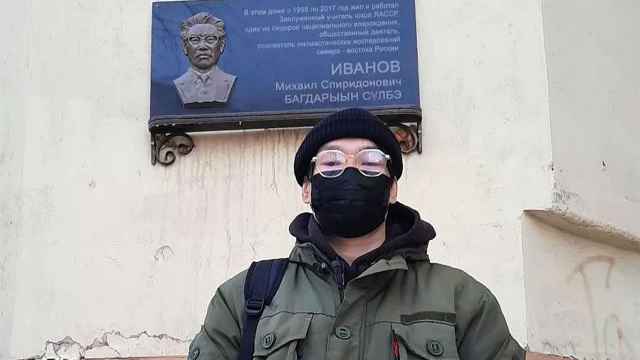It’s been a while coming but Kazakhstan has finally woken up, with alarming scenes of government buildings in flames and thousands of protesters filling the streets and clashing with security forces coming out of Almaty, Kazakhstan’s commercial hub.
In scenes quickly replicated across the country, protesters, initially fired up by fuel price hikes that came into effect on Jan. 1, took to the streets. The government backtracked on the price rises but the protesters' demands had already moved on, with calls for more political involvement and the final removal from power of former president Nursultan Nazarbayev.
The rallying cry of “Shal Ket”, (Old Man Out), a reference to Nazarbayev, could be heard at protests across the country. But the calls are more about dismantling the corrupt system that the “Leader of the Nation,” a title bestowed upon Nazarbayev, has bequeathed to Kazakhstan.
There has long been a disconnect between what the government wants to offer the public and what the people need. The resignation of Nazarbayev, who ruled the country for nearly three decades, in 2019 is a case in point.
When Nazarbayev announced he was stepping aside and anointing veteran diplomat Qasym-Jomart Tokayev as his successor, people felt cheated of the chance to choose their own path. The wave of protests that followed that decision ultimately petered out, but the feelings that it unleashed continued to bubble away, never very far from the surface.
This January, resentment once again rose to the fore as the new year was ushered in with sharp spikes in the price of liquified petroleum gas, a fuel used by many drivers in the western region of Mangystau. This is the area where most of the country’s oil and gas income comes from and it has long been a hotbed of unrest. In December 2011, the authorities opened fire on striking oil workers in the town of Zhanaozen killing 16 people.
This time round, trouble soon spread out from Zhanaozen as demonstrators gathered across Kazakhstan. Within a few days the protests spiralled and started to gain momentum. Moves by embattled President Tokayev to calm the situation, including a rolling back of the price rises, did little to quell the protest mood that had taken hold across Kazakhstan.
As expected, the government resigned in the aftermath of the protests, but this is commonplace in Kazakhstan where the head of state often shuffles the limited deck that is at his disposal.
As the protests grew, a state of emergency was introduced. The authorities were forced to take more combative methods to try and stem the unrest. But despite a show of force, with ranks of National Guard troops and riot control vehicles guarding the approaches to key administrative buildings and a barrage of stun grenades, tear gas and water cannon, the crowds were undeterred and overran the security forces to grab control of City Hall, set the Prosecutor General’s office alight and ransack the ruling Nur Otan party’s HQ in Almaty.
Pact cracking
Kazakhstan’s unofficial social pact that saw voters trade political freedom for economic security is cracking under the strain. The growing ranks of the disaffected have seen their incomes shrink in recent years as the pandemic, a worsening economic situation and inflation have left many struggling to get by.
Disgruntled workers in Kazakhstan’s rundown oil towns have seen billions of dollars poured into vanity projects such as the grandiose capital Nur-Sultan, named after Nazarbayev, while basic living standards have failed to grow and many in the regions have to put up with no running water, intermittent power supplies and falling incomes in real terms.
This stagnation has gathered pace in the shadow of a personality cult that has developed around the first president. Statues of the Leader of the Nation have appeared all over the country and streets and parks have been named in Nazarbayev’s honor. His successor’s first act as president was to call for Astana to be renamed after the father of the nation.
However, the mood is turning against the first president and his family. The Nazarbayev clan and its cronies have enriched themselves while living standards stagnate for the masses. A statue of the previously untouchable figure of Nazarbayev was toppled during the unrest in the city of Taldykorgan, a three-hour drive from Almaty.
As smoke fills the skies above Kazakhstan’s cities and statues start to fall, a number of private jets were tracked flying out of its airports as the elite headed out to their luxury villas around the globe. The former president’s three daughters own swathes of multi-million dollar property on Swiss lakesides and in London and New York’s swankiest neighborhoods.
With the Nazarbayev family’s iron grip on Kazakhstan finally loosening, it looks like the endgame is nigh for the ruling family as Kazakhstan finally wakes up to its future.
A Message from The Moscow Times:
Dear readers,
We are facing unprecedented challenges. Russia's Prosecutor General's Office has designated The Moscow Times as an "undesirable" organization, criminalizing our work and putting our staff at risk of prosecution. This follows our earlier unjust labeling as a "foreign agent."
These actions are direct attempts to silence independent journalism in Russia. The authorities claim our work "discredits the decisions of the Russian leadership." We see things differently: we strive to provide accurate, unbiased reporting on Russia.
We, the journalists of The Moscow Times, refuse to be silenced. But to continue our work, we need your help.
Your support, no matter how small, makes a world of difference. If you can, please support us monthly starting from just $2. It's quick to set up, and every contribution makes a significant impact.
By supporting The Moscow Times, you're defending open, independent journalism in the face of repression. Thank you for standing with us.
Remind me later.






